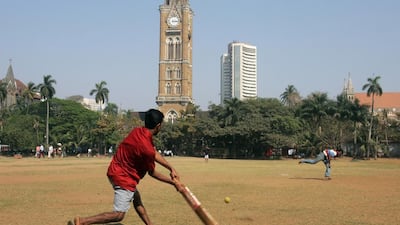In just seven weeks, the new year seems to have become troublingly old for India. Three old issues with all their upsetting associations – caste, colonialism and potentially seditious dissent – are back on the news agenda. They’ve restarted some very unpleasant conversations and in such a corrosive way that there is a sense of a country deeply polarised and almost at war with itself.
In January, the suicide of a lower caste Hindu doctoral student triggered nationwide protests as well as knee-jerk official defensiveness. Last week, India’s rejection of Facebook’s free, basic internet service raised questions about the implications of its ingrained fear of foreign dominance. And a row over the right to public dissent is rumbling on. It started just days ago with a police crackdown on the campus of a leading university in the capital New Delhi.
All three events are linked in a way that goes beyond being newsworthy. They have the same pathology. All are deeply embedded in the Indian psyche, sickening the body politic and rendering debate unfit for purpose. It may be fair to say that the hold of these three issues has never really been meaningfully discussed with complete candour, in any way that would acknowledge the real difficulties of laying them to rest.
Consider the snowballing controversy over allegedly seditious activity, especially on university campuses. Last week, the head of the student union of Delhi’s Jawaharlal Nehru University was arrested for sedition, under a law that dates to British rule. This university is sometimes described as an Indian Berkeley, with a proud tradition of left-wing debate on a range of issues such as communalism, social marginalisation, market forces, nuclear disarmament and the role of religion in politics.
The student leader’s alleged offence was to organise a protest against the hanging three years ago of Afzal Guru, a Kashmiri separatist who was convicted and put to the death over a 2001 plot to attack India’s parliament. Guru always denied plotting the attack and his execution triggered protests in Jammu and Kashmir.
The JNU student leader denies he made seditious statements or even organised the meeting that prime minister Narendra Modi’s government describes as anti-national. Yet the education minister called it “an insult to Mother India”. And India’s home minister said it was designed “to raise questions on the nation’s unity and integrity”. This was a euphemism for the issue that sections of the establishment find most troubling – calling into question India’s claim to Kashmir, thereby giving ballast to its rival Pakistan.
Some Indian commentators criticised the government's response as "disproportionate" and far more insidious than an attempt to crush dissent; it "wants to crush thinking". JNU research scholar Saib Bilaval wrote that it was "the othering of liberalism", making it "unpatriotic" to profess liberal views. Students on other campuses have since spoken up about the right to free expression and an editorial headlined "Do not disagree" in the Indian Express newspaper thundered that the message of the JNU arrest sits uneasily with India's overwhelmingly youthful demographic.
There has been a sharp rise in the number of sedition cases pointing to lower tolerance of dissent. More damagingly, it indicates an incomplete examination of the nature and mechanics of nation-building. In the 69th year of its independence from British rule, some might justifiably say that India seems less confident about the limits – and merits – of democratic criticism and the role this plays in citizens’ compact with the state. The JNU row will subside, but the issue won’t go away.
So too is discrimination on the basis of caste, an old practice whose dreadful legacy lingers on. That caste-based discrimination remains a sensitive and inadequately-addressed issue became apparent a few weeks ago when Rohith Vemula, a PhD student in Hyderabad, killed himself.
Vemula was Dalit – formerly known as untouchable – and at the bottom of the Hindu caste hierarchy. His suicide note indicated that he felt crushed by discrimination and the official stonewalling response to his death set off angry protests about inequity in 21st century India. Mr Modi’s government has called for a dialogue with universities on discrimination but there are fears that it will be a yet another bureaucratic exercise rather than a genuine exploration of marginalisation – its past, present and future.
Finally, colonialism. There are differing views worldwide on net neutrality, the principle that internet service providers should enable access to all content and applications regardless of the source. But when Indian regulators banned Facebook’s “Free Basics”, a programme controversially providing free mobile internet in poor countries, it was hard not to see it as a sign of a general anxiety about unfair foreign competition with the intention to dominate.
Software billionaire Nandan Nilekani, co-founder of Bangalore-based IT group Infosys, recently admitted as much. “There is this real rising fear in India about digital colonialism,” he said.
This is a legitimate worry, and not just in India. But it is especially so in India in relation to most things foreign. This is understandable. India was colonised for so long and became independent relatively recently. That said, it may be time for a proper national conversation about its fears and hopes when doing business with the world.
Some say the ructions over colonialism, caste discrimination and sedition are India’s “culture wars”. If that is the case, it is the culture of illiberalism and fear that appears to be in open combat with tolerance and confidence.
Rashmee Roshan Lall is a writer on world affairs
On Twitter: @rashmeerl


